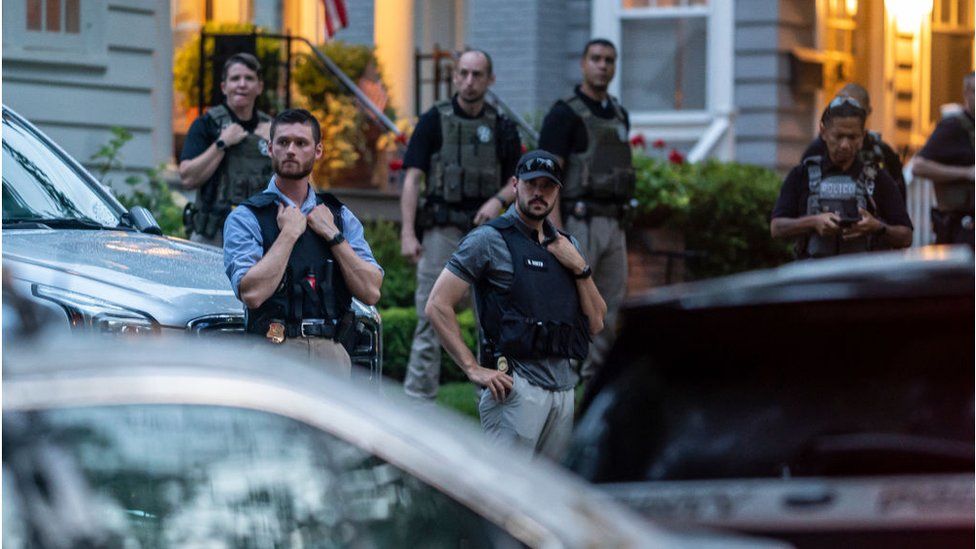The US Supreme Court has been unable to determine how a controversial draft decision regarding abortion was leaked before it was formally announced.
On Thursday, investigators said that they still do not know whether the leak was deliberate or unintentional after eight months of opening the probe.
In May, a draft opinion of the court's decision to overturn the national right to abortion was published by Politico.
The Chief Justice ordered a probe into the "egregious breach of trust".
The court's chief security officer Gail Curley has found that 82 court employees, as well as the nine court justices, had access to electronic or paper copies of the draft decision.
Investigators have so far "conducted 126 formal interviews of 97 employees, all of whom denied disclosing the opinion," the court said in a 23-page report on its website.
Several employees had to amend their initial statements in order to admit that they broke confidentiality protocols by telling their spouses about how the court voted and what the draft opinion said.
But the report did not make clear whether the justices themselves were interviewed by investigators.
When the actual opinion was published, it varied only slightly from the draft.
The leak revealed that five justices planned to overturn Roe v Wade, which established the constitutional right to abortion in 1973. The decision in the case that was leaked - Dobbs v Jackson Women's Health Organization - threw it back to states to decide how to regulate abortion.
The unprecedented leak shocked court-watchers, and outraged liberals opposed to the conservative-majority court's decision.
It also led to round-the-clock security outside the homes of Supreme Court justices amid protests against the draft verdict.
In June, a man carrying a gun, knife and zip ties was arrested near the home of conservative Justice Brett Kavanaugh. He told police that he was upset about the Dobbs decision.
Investigators scoured court computers, networks, printers and call logs for forensic evidence, but found nothing to indicate a possible culprit.
"If a court employee disclosed the draft opinion, that person brazenly violated a system that was built fundamentally on trust with limited safeguards to regulate and constrain access to very sensitive information," the report said.
The report also called it "unlikely" that the "public disclosure was caused by a hack of the court's IT systems".
The report's findings have been criticised by both liberals and conservatives.
The document "reflects the chief justice's utter failure in the administrative aspect in his role," said Carrie Servino of the conservative Judicial Crisis Network.
The co-founder of the liberal legal group Demand Justice said that investigators must reveal whether the judges were questioned, especially considering that one their spouses could have been the source of the leak.
"The idea that the justices themselves may have been excluded from the inquiry undermines the credibility of the whole undertaking," said Brian Fallon.
"Ultimately, it looks like the Supreme Court may be more interested in protecting its own members than actually solving this whodunit."
Michael Chertoff, the former Department of Homeland Security chief, was also tasked with independently assessing whether the investigation was probing every possible source of the leak.
The court also released a short statement from him calling the probe "thorough", and saying that investigators had taken every possible step to find the source.

